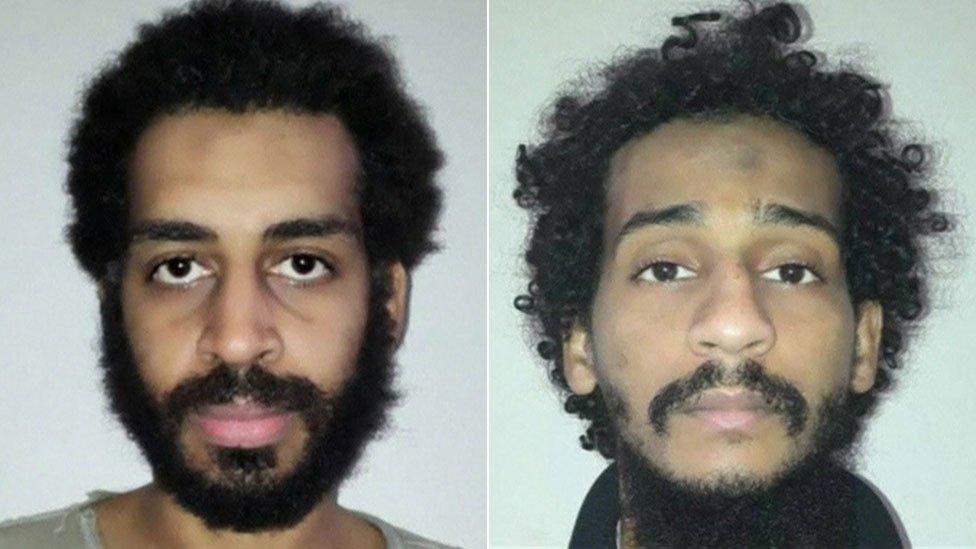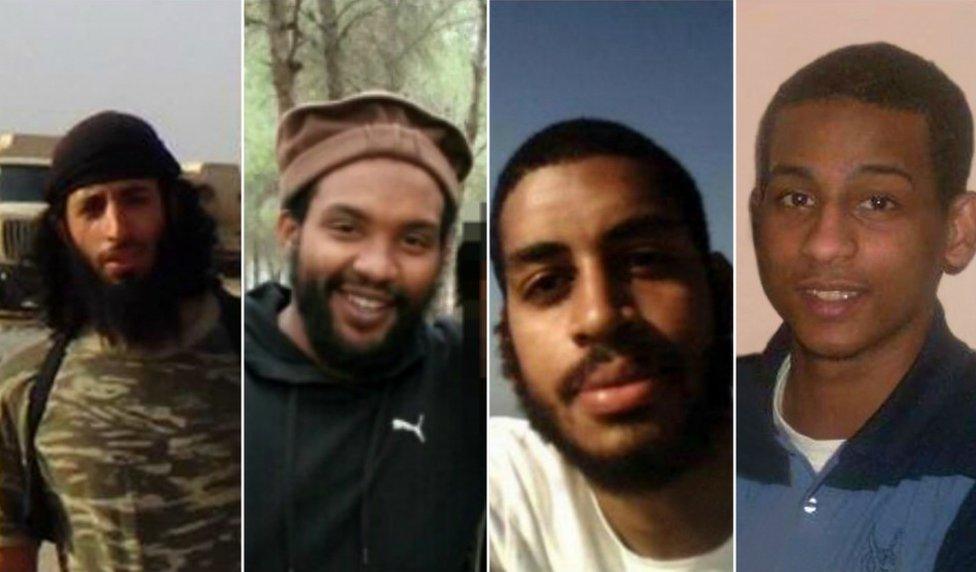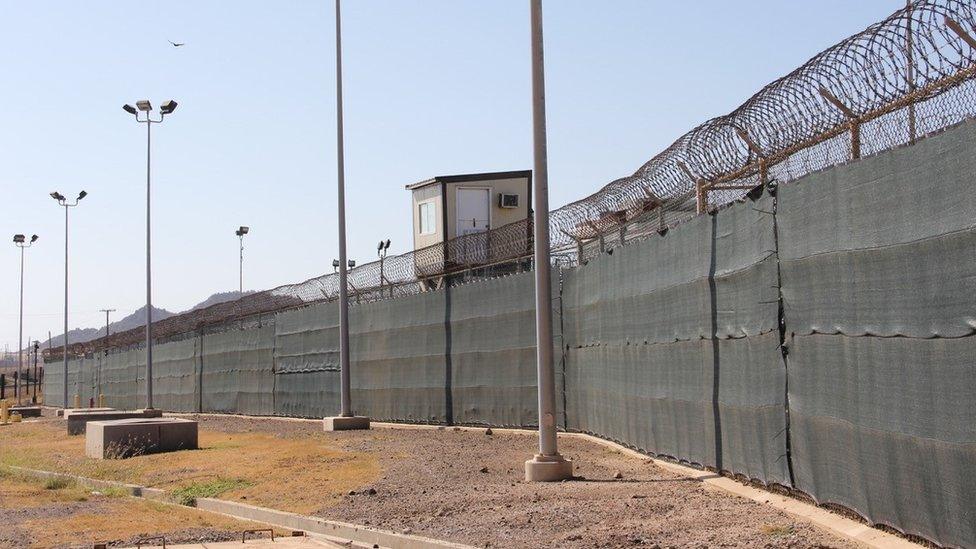UK halts co-operation with US over Islamic state suspects
- Published

Alexanda Kotey (left) and El Shafee Elsheikh were captured by Syrian Kurdish forces
The UK has suspended co-operation with the US over two Islamic State suspects.
Ministers had said they would share intelligence with the US that could lead to the men's conviction, without opposing a death penalty sentence.
However the mother of one of the men has now launched a legal challenge to prevent such information sharing.
The Home Office has halted co-operation until a judge has had a chance to consider an application for judicial review.
Alexanda Kotey and El Shafee Elsheikh, both of whom have been stripped of British nationality, are wanted for being part of the IS kidnap gang behind hostage executions.
They are accused of being the last two members of an IS group dubbed "The Beatles" because of their British accents.
Lawyers for the mother of El Shafee Elsheikh have now prepared detailed grounds challenging Mr Javid's decision to share information with the US without a death penalty assurance - meaning a case could be before High Court judges in days.
They said the home secretary's actions revealed "a clear and dramatic departure from the UK's long standing international and domestic commitment to oppose the continuing exercise of the death penalty."
A Home Office spokesperson said the government had "agreed to a short-term pause" but was confident it had "acted in full accordance of the law".
The two men are currently being held by Kurdish forces and the UK believes it cannot legally extradite them to face trial here.
This week it emerged that the US was preparing the ground to prosecute the men itself - and that it had asked the UK for information that would help convict them.
In a letter leaked to the Daily Telegraph, external, Home Secretary Sajid Javid wrote that the UK would not oppose the use of the death penalty if the two men were extradited to the US.
In the past Britain has sought assurances from foreign governments that the death penalty would not be used in cases where the UK provided information or extradited suspects.
Number 10 had said this was "a long-standing position" to oppose the death penalty but added that in this case it was "a priority to make sure that these men face criminal prosecution".

Analysis by BBC home affairs correspondent Dominic Casciani
The home secretary's position boils down to a simple question: Would you run the risk of them going free?
Given Elsheikh and Kotey are in the custody of Syrian Kurdish forces, that sounds unlikely.
But British prosecutors can't bring the men for trial here because they're not being held by a recognised state with whom the UK has a legally recognised extradition agreement - it would amount to kidnap.
The forces holding the men are, however, backed by the US - and American courts are less fussy about the legalities of how a suspect ends up in the dock.
The US may need British information to make a prosecution stick - hence the co-operation.
This challenge from Mr Elsheikh's mother isn't about that evidence - but whether the ministerial decision to share it demolishes the UK's internationally recognised opposition to capital punishment.
In case after case down the years, the UK has refused to provide legal help that could lead to overseas executions.
So this decision to help the Americans, made in the hope of landing a conviction of two of the most wanted men in the world, could turn into a major legal fight.

Labour accused the UK of having "unilaterally abandoned" its opposition to the death penalty.
The former independent reviewer of terrorism legislation, Lord Carlile said this constituted "a unilateral change of policy without any consultation".

Left to right: Mohammed Emwazi, Aine Davis, Alexanda Kotey and El Shafee Elsheikh
The BBC's security correspondent Frank Gardner said a senior British government official told him that this case was not the first time that the UK had dropped its request for assurances that the death penalty would not be used.
But our correspondent said if the pair were sent to the controversial US military prison Guantanamo Bay - where suspects have been detained without trial - the UK would withhold intelligence.
- Published10 February 2018

- Published23 July 2018